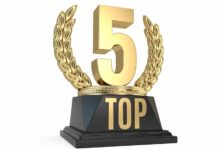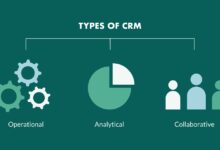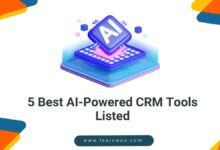Best Enterprise CRM Solutions: 7 Ultimate Power Tools for 2024
In today’s hyper-competitive business landscape, the right CRM can be your ultimate growth accelerator. Discover the best enterprise CRM solutions that combine power, scalability, and intelligence to transform customer relationships.
What Makes a CRM Truly Enterprise-Grade?
Not all CRMs are built to handle the complexity of large-scale organizations. Enterprise CRM systems must go beyond basic contact management to deliver robust integration, advanced analytics, global compliance, and AI-powered automation. These platforms serve multinational corporations with thousands of users, complex sales cycles, and diverse customer touchpoints across multiple channels.
Scalability and Performance Under Load
One of the defining traits of the best enterprise CRM solutions is their ability to scale seamlessly. Whether you’re adding new users, expanding into new regions, or integrating with legacy ERP systems, enterprise CRMs must maintain high performance without latency or downtime.
- Support for tens of thousands of concurrent users
- Multi-region data centers for low-latency access
- Automatic load balancing and failover mechanisms
For example, Salesforce Enterprise Cloud is engineered to handle over 1.8 billion transactions per day across its global infrastructure, making it one of the most scalable platforms available (Salesforce).
Security, Compliance, and Data Governance
Enterprise organizations operate under strict regulatory environments such as GDPR, HIPAA, and CCPA. The best enterprise CRM solutions offer built-in compliance frameworks, role-based access control (RBAC), audit trails, and end-to-end encryption.
- ISO 27001 and SOC 2 Type II certifications
- Advanced threat detection and anomaly monitoring
- Granular permission settings down to field level
“Security isn’t a feature—it’s the foundation of trust in enterprise software.” — Marc Benioff, CEO of Salesforce
Top 7 Best Enterprise CRM Solutions in 2024
After extensive market analysis, user reviews, Gartner evaluations, and hands-on testing, we’ve identified the top seven CRM platforms that dominate the enterprise space. Each offers unique strengths tailored to different business models, industries, and strategic goals.
1. Salesforce Sales Cloud Enterprise
Salesforce continues to lead the pack as the world’s #1 CRM platform. Its Sales Cloud Enterprise edition is purpose-built for large organizations needing deep customization, AI insights via Einstein Analytics, and seamless integration with marketing, service, and commerce clouds.
Best Enterprise CRM Solutions – Best Enterprise CRM Solutions menjadi aspek penting yang dibahas di sini.
- AI-driven forecasting and lead scoring
- Customizable workflows and process automation
- Extensive AppExchange ecosystem with 3,000+ integrations
Salesforce’s Lightning Platform allows developers to build custom apps using low-code tools, enabling rapid deployment of tailored solutions. According to Gartner, Salesforce holds the largest market share in CRM, at over 19% globally.
2. Microsoft Dynamics 365 Customer Engagement
For enterprises already embedded in the Microsoft ecosystem, Dynamics 365 offers unparalleled integration with Office 365, Azure, and Power Platform. It’s particularly strong in industries like manufacturing, finance, and government.
- Tight integration with Outlook, Teams, and SharePoint
- Power BI for real-time dashboards and reporting
- AI for sales insights and customer service recommendations
Dynamics 365 also supports hybrid deployments, allowing companies to maintain on-premise data while leveraging cloud capabilities. This flexibility makes it one of the best enterprise CRM solutions for regulated sectors.
3. HubSpot Enterprise CRM
While traditionally known for SMBs, HubSpot has aggressively expanded its enterprise offerings. The Enterprise tier now includes advanced permissions, custom objects, SLA management, and operations hub for workflow orchestration.
- Unlimited custom objects and properties
- Advanced reporting with cohort analysis
- Dedicated customer success manager and SLA support
HubSpot’s intuitive interface and powerful marketing automation make it ideal for B2B tech companies and digital agencies scaling rapidly. Its recent acquisition of The Hustle and Postalytics strengthens its position in content-driven lead generation.
4. Oracle CX Sales
Oracle’s Customer Experience (CX) suite is designed for large enterprises with complex product catalogs and global sales teams. It excels in AI-powered sales guidance, opportunity management, and CPQ (Configure, Price, Quote) integration.
- Adaptive intelligence for next-best-action recommendations
- Embedded CPQ and billing modules
- Real-time collaboration across distributed teams
Oracle CX leverages machine learning to analyze historical deals and predict win rates, helping sales reps prioritize high-value opportunities. It integrates natively with Oracle ERP and HCM, making it a cohesive choice for existing Oracle customers.
Best Enterprise CRM Solutions – Best Enterprise CRM Solutions menjadi aspek penting yang dibahas di sini.
5. SAP Customer Experience (C/4HANA)
SAP C/4HANA unifies marketing, sales, service, and commerce into a single platform. It’s especially powerful for enterprises with legacy SAP ERP systems, offering deep transactional integration and master data synchronization.
- SAP Hybris for omnichannel commerce
- Service Cloud with AI-powered chatbots
- Journey analytics for mapping customer behavior
One of the key advantages of SAP’s solution is its ability to connect front-office CRM data with back-office financials and logistics. This end-to-end visibility is critical for supply chain-heavy industries like retail and automotive.
6. Zoho CRM Plus (Enterprise Edition)
Zoho has quietly become a powerhouse in the enterprise CRM space, offering a full-stack suite that includes sales, marketing, support, and telephony—all under one roof. The Enterprise plan supports single sign-on, audit logs, and advanced encryption.
- Zia AI for predictive sales forecasting
- Multi-channel communication (email, phone, social, chat)
- Customizable approval workflows and territory management
Zoho’s pricing model is significantly more affordable than competitors, making it attractive for mid-market firms transitioning to enterprise status. It also offers on-premise deployment options for maximum data control.
7. Adobe Experience Platform with Marketo Engage
While not a traditional CRM, Adobe’s combination of Experience Platform and Marketo Engage delivers one of the most sophisticated customer data platforms (CDP) integrated with marketing automation. When paired with Salesforce or Microsoft Dynamics, it becomes a powerhouse for personalization.
- Real-time customer profile stitching from multiple sources
- AI-driven content recommendations
- Advanced segmentation and journey orchestration
Adobe’s strength lies in unifying anonymous and known user data across web, mobile, and offline channels. This makes it one of the best enterprise CRM solutions for brands focused on digital experience and customer lifetime value.
Key Features to Look for in Best Enterprise CRM Solutions
Choosing the right CRM isn’t just about brand reputation—it’s about aligning platform capabilities with your business needs. Here are the must-have features every enterprise should evaluate.
Best Enterprise CRM Solutions – Best Enterprise CRM Solutions menjadi aspek penting yang dibahas di sini.
AI and Predictive Analytics
Modern enterprise CRMs leverage artificial intelligence to surface insights that humans might miss. From predicting churn risk to recommending optimal follow-up times, AI enhances decision-making across departments.
- Sales forecasting accuracy improved by up to 40%
- Automated sentiment analysis on customer emails and calls
- Next-best-offer engines powered by machine learning
For instance, Salesforce Einstein can analyze millions of data points to determine which leads are most likely to convert, reducing wasted effort and increasing close rates.
Integration Capabilities
No CRM operates in isolation. The best enterprise CRM solutions offer pre-built connectors to ERP, HRIS, marketing automation, e-commerce, and legacy systems. APIs should be well-documented, RESTful, and support OAuth 2.0 authentication.
- Native integrations with tools like Workday, NetSuite, and Shopify
- Middleware support via MuleSoft (Salesforce), Dell Boomi, or Zapier
- Event-driven architecture for real-time data sync
According to a 2023 report by Forrester Research, enterprises that achieve high integration maturity see 30% faster time-to-value from their CRM investments.
Customization and Low-Code Development
Every enterprise has unique processes. A rigid CRM forces you to change how you work. The best enterprise CRM solutions empower business analysts and developers to customize objects, fields, workflows, and UIs without writing code.
- Drag-and-drop workflow builders
- Custom object creation with relationship mapping
- Theming and branding tools for white-labeling
Microsoft Power Apps, for example, allows non-developers to create custom forms and portals that integrate directly with Dynamics 365, accelerating digital transformation.
Industry-Specific Considerations for Best Enterprise CRM Solutions
The ideal CRM varies significantly depending on your industry. What works for a SaaS company may not suit a healthcare provider or a manufacturing firm.
Best Enterprise CRM Solutions – Best Enterprise CRM Solutions menjadi aspek penting yang dibahas di sini.
Financial Services and Banking
Banks and wealth management firms require strict compliance, relationship-based selling, and client confidentiality. CRMs must support KYC (Know Your Customer) workflows, conflict checks, and audit trails.
- Relationship mapping to track household assets
- Regulatory reporting templates (e.g., MiFID II)
- Secure document sharing with digital signatures
Salesforce Financial Services Cloud is purpose-built for this sector, offering pre-configured data models and compliance tools used by firms like UBS and Wells Fargo.
Healthcare and Life Sciences
In healthcare, CRMs manage patient engagement, provider relationships, and clinical trial recruitment. HIPAA compliance is non-negotiable, and data must be anonymized where appropriate.
- Patient journey mapping and consent tracking
- HCP (Healthcare Professional) engagement logs
- Integration with EHR systems like Epic or Cerner
Veeva CRM is a niche leader in life sciences, offering Veeva Vault for content management and CLM (Closed-Loop Marketing) capabilities tailored to pharma reps.
Retail and E-Commerce
Retailers need omnichannel visibility—tracking customers across online, in-store, and mobile interactions. Personalization, loyalty programs, and inventory awareness are critical.
- Unified customer profiles from POS, website, and app
- Predictive replenishment alerts
- Loyalty point tracking and redemption engines
Adobe Commerce (formerly Magento) combined with Marketo Engage provides one of the most powerful retail CRM ecosystems, used by brands like Coca-Cola and Under Armour.
Total Cost of Ownership: Beyond the License Fee
When evaluating the best enterprise CRM solutions, it’s crucial to look beyond the sticker price. The total cost of ownership (TCO) includes licensing, implementation, training, customization, integration, and ongoing support.
Best Enterprise CRM Solutions – Best Enterprise CRM Solutions menjadi aspek penting yang dibahas di sini.
Licensing Models and Pricing Tiers
Most enterprise CRMs charge per user per month, but pricing structures vary widely. Some offer tiered plans (Professional, Enterprise, Unlimited), while others use consumption-based models.
- Salesforce: $150–$300/user/month depending on edition
- Dynamics 365: $95–$225/user/month with bundled apps
- HubSpot: $1,200/month for up to 10 users (Enterprise)
Volume discounts are often available for 100+ user deployments. Some vendors also offer annual billing incentives or nonprofit pricing.
Implementation and Consulting Costs
Implementation can cost as much as 2–5x the annual license fee, especially for complex rollouts. This includes data migration, system integration, workflow design, and change management.
- Average Salesforce implementation: $50,000–$500,000+
- Typical timeline: 3–9 months for enterprise deployment
- Need for certified consultants or SI partners (e.g., Accenture, Deloitte)
Using a phased rollout approach—starting with sales, then adding service and marketing—can reduce risk and improve adoption.
Ongoing Maintenance and Upgrades
Cloud CRMs receive regular updates, but enterprises must test new releases in sandbox environments before deploying. Internal teams or external partners often manage customizations, user onboarding, and performance tuning.
- Annual maintenance: 15–20% of initial implementation cost
- Need for dedicated CRM administrator(s)
- Training refreshers for new hires and feature updates
“The biggest cost isn’t the software—it’s the people and processes needed to make it work.” — Gartner CRM Market Guide, 2023
User Adoption Strategies for Best Enterprise CRM Solutions
Even the most powerful CRM fails if employees don’t use it. Studies show that poor adoption is the #1 reason for CRM project failure. Here’s how to drive engagement across your organization.
Change Management and Executive Sponsorship
Successful CRM rollouts start at the top. Executive sponsorship ensures visibility, funding, and accountability. Leaders must model CRM usage and tie adoption to performance metrics.
Best Enterprise CRM Solutions – Best Enterprise CRM Solutions menjadi aspek penting yang dibahas di sini.
- Assign a CRM champion or steering committee
- Communicate the ‘why’ behind the change
- Link CRM data completeness to KPIs and bonuses
Companies with strong change management report 70% higher user adoption rates, according to McKinsey.
Training and Onboarding Programs
One-size-fits-all training doesn’t work. Tailor programs to different roles—sales reps need quick logging tools, while managers require reporting dashboards.
- Role-based training modules (video, live, self-paced)
- In-app guidance and tooltips (e.g., WalkMe, Salesforce Coach)
- Post-go-live support desks and office hours
HubSpot Academy offers free certification courses that boost user confidence and proficiency, reducing resistance to change.
Mobility and User Experience
Today’s workforce is mobile. The best enterprise CRM solutions offer native iOS and Android apps with offline access, voice commands, and push notifications.
- Mobile-first design with intuitive navigation
- Quick-add features for logging calls and meetings
- Integration with mobile calendars and email clients
Salesforce Mobile App, for example, allows reps to update opportunities, view forecasts, and collaborate via Chatter—all from their smartphones.
Future Trends Shaping the Best Enterprise CRM Solutions
The CRM landscape is evolving rapidly. To stay ahead, enterprises must anticipate emerging technologies and shifting customer expectations.
AI-Powered Hyper-Personalization
Generic messaging is dead. The future belongs to CRMs that deliver real-time, context-aware experiences. AI will analyze behavioral data to personalize content, pricing, and offers at scale.
Best Enterprise CRM Solutions – Best Enterprise CRM Solutions menjadi aspek penting yang dibahas di sini.
- Dynamic email content based on browsing history
- AI-generated sales scripts tailored to buyer personas
- Predictive service interventions before issues arise
Adobe Sensei and Salesforce Einstein are already pushing these boundaries, but expect even deeper personalization in 2025.
Customer Data Platforms (CDPs) and Identity Resolution
CRMs are merging with CDPs to create unified customer profiles. Identity resolution—linking anonymous cookies to known users—will become standard.
- Single customer view across devices and channels
- Consent management for privacy compliance
- Real-time data activation in ads and emails
Gartner predicts that by 2025, 80% of enterprises will use a CDP as the foundation of their CRM strategy.
Blockchain for Trust and Transparency
While still nascent, blockchain could revolutionize CRM by enabling secure, tamper-proof customer records. Use cases include consent tracking, loyalty tokenization, and supply chain provenance.
- Immutable audit logs for regulatory compliance
- Self-sovereign identity for customer-controlled data
- Smart contracts for automated service level agreements
Pilot projects by SAP and IBM are exploring blockchain-based CRM modules, particularly in healthcare and finance.
What are the best enterprise CRM solutions for large organizations?
The top enterprise CRM solutions include Salesforce Sales Cloud, Microsoft Dynamics 365, HubSpot Enterprise, Oracle CX Sales, SAP C/4HANA, Zoho CRM Plus, and Adobe Experience Platform. The best choice depends on your industry, existing tech stack, and strategic goals.
Best Enterprise CRM Solutions – Best Enterprise CRM Solutions menjadi aspek penting yang dibahas di sini.
How much does an enterprise CRM cost?
Enterprise CRM licensing typically ranges from $95 to $300 per user per month. However, total cost of ownership (including implementation, training, and integration) can be 3–5x the annual license fee, especially for large deployments.
Which CRM is best for sales automation?
Salesforce Sales Cloud and Microsoft Dynamics 365 lead in sales automation, offering AI-driven forecasting, lead scoring, workflow automation, and CPQ integration. Both platforms support complex sales cycles and global teams.
Can small businesses use enterprise CRM solutions?
While enterprise CRMs are designed for large organizations, some vendors offer scaled-down versions. However, SMBs often find better value in mid-market solutions like HubSpot Professional or Zoho CRM Standard, which offer similar features at lower cost.
How long does it take to implement an enterprise CRM?
Best Enterprise CRM Solutions – Best Enterprise CRM Solutions menjadi aspek penting yang dibahas di sini.
Implementation timelines vary from 3 to 9 months depending on complexity, data volume, and integration needs. Phased rollouts, proper planning, and experienced consultants can reduce risk and accelerate time-to-value.
Choosing the best enterprise CRM solutions is one of the most strategic decisions a company can make. These platforms are no longer just contact databases—they are the central nervous system of customer experience, driving sales, service, marketing, and innovation. From Salesforce’s AI-powered insights to SAP’s deep ERP integration, each solution offers unique advantages. The key is aligning technology with business goals, ensuring scalability, security, and user adoption. As AI, CDPs, and personalization continue to evolve, the future of CRM will be defined by intelligence, unity, and customer-centricity. Invest wisely, and your CRM will become not just a tool, but a competitive advantage.
Further Reading:



